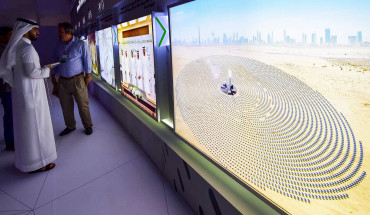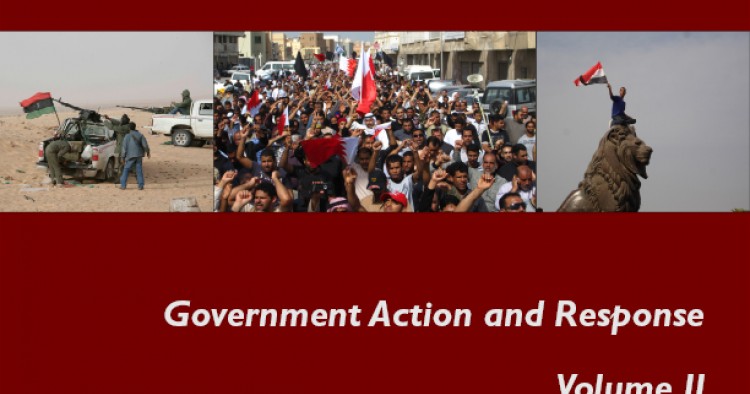Originally posted September 2011
On August 21, 2011, rebel forces in Libya rolled into the capital Tripoli, seemingly finishing off months of armed combat and foreign intervention and bringing down yet another Arab head of state. At the same time, sporadic but violent repression of protests in Syria continues, while other states remain calm or have seen their protest movements fizzle. We open this second volume of our series, Revolution and Political Transformation¸ at a time of uncertainty and transition for the region.
The events of the “Arab Spring” demonstrate more clearly than anything else the heterogeneous nature of states in the Middle East. Monarchies, republics, and jamahiriyya alike have all faced popular protest to one degree or another, yet some have stood and some have crumbled. While the first volume of this compilation of essays focuses on Agents of Change, those people and movements who pushed these revolutions forward, the essays in this volume seek to answer the question of why they succeed or fail by examining regime responses. Why does nonviolence accomplish in Egypt and Tunisia what required armed insurrection to accomplish in Libya, and why does nonviolence fail in Syria and Bahrain? What role does the US play in the success or failure of popular protest? By examining the “re-action” to the “action” of popular mobilization, we hope to provide a more complete picture for future analysis.
This volume comes little more than half a year since the fall of President Husni Mubarak in Egypt, and the ink has not yet dried on the pages being written about the other countries in the region. We intend these pieces to provide an outlet for commentaries, hypotheses, and analysis, but not to serve as the final word. The third and final volume in this series to be released this fall will seek to summarize our contributors’ thoughts on the way forward.
The Middle East Institute (MEI) is an independent, non-partisan, non-for-profit, educational organization. It does not engage in advocacy and its scholars’ opinions are their own. MEI welcomes financial donations, but retains sole editorial control over its work and its publications reflect only the authors’ views. For a listing of MEI donors, please click here.












